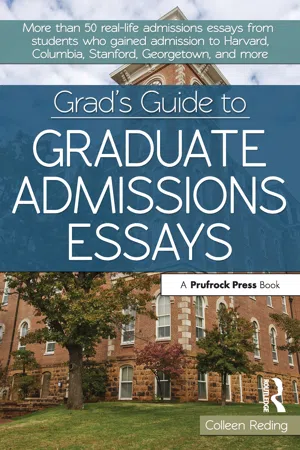For a split second, the rat and I locked eyes. The critter casually continued gnawing at a crumb from my dinner before disappearing into my host Cindy's bedroom. I was indifferent and continued playing paper, rock, scissors with Cindy's three kids. Cindy was one of the women I worked with closely on the women's empowerment program I was interning for an international NGO in Malawi. She was a hefty-sized, incredibly jolly woman who commanded respect from whomever she met. About halfway through my time in Malawi, after my fondness for children had become painfully obvious, she invited me to her home so that I could play with her own kids.
WRITER'S WORDS OF WISDOM
If your grad program allows you to defer enrollment, seriously consider doing it. Deferrals give you an opportunity to do things you might not be able to do after grad school with the security of a spot at a grad program waiting for you. There's no rush to start school right after undergrad in the grand scheme of things.
That's when I found out that she was a widow. Guiltily, I realized I was not even surprised. In a country where one out of every 10 people is HIV positive, the devastating effects of one of recent history's most destructive and ruthless endemics somehow haunted practically everyone I had met. Everyone has a story. One more tragic than the next.
Strangely, I left Malawi not crippled with despair and grief, although I certainly fought such emotions throughout my stay, but filled with hope and inspired by the strength of the people of Malawi. I desperately wanted to return to Malawi; little did I know how soon that day would come.
While I was in Malawi that first summer, I became friendly with some of the teenagers who lived in the neighborhood I was staying in. At first, they were only eager to ask me if I had ever met Jennifer Lopez or Madonna, but they eventually began to share their personal lives with me. Most had lost a family member to AIDS. Many lived in poverty. Yet, they spent the most time recounting familiar teenage problems with their peers: gossip, boyfriend/girlfriend issues, jealousy, and petty theft. It dawned on me that these kids were facing the same growing pains every teenager experiences. When I asked them how they dealt with these issues, they said the teachers would usually punish them, occasionally beating or whipping them. Although I was disappointed with how these conflicts were handled, I understood that the teachers were overworked, underpaid, and understaffed and probably did not possess the time or resources to handle student conflicts in a more effective manner.
MAKING IT PERSONAL
Good essays will utilize an example of a meaningful experience to pinpoint interest in a given field. Great essays will go a step beyond and show how the author internalized the experience. Here, the author offers insight into why Malawi was so significant and how it continues to impact the author's life after Africa.
When I was back in the United States, I began thinking about my experiences as a peer mediator when I was in middle school. A group of students and I had been trained by a professional mediator in conflict resolution, listening, and communication skills in order to serve as peer mediators and assist fellow students in devising their own solutions to conflicts. My peers could come up with their own solutions, their own contracts, and their own laws to govern their relationships. Could this model be applied to Malawi? Initially, I was apprehensive. Who was I to go into an African country and impose a program that has only been tested in the West? Yet, the idea kept nagging at me. As someone who hopes to work toward advancing social justice in the world, I greatly value empowerment as a tool for change. Peer mediation is a fundamentally empowering concept for all involved, in that it provides students with agency over their own lives and trusts them to resolve their own issues without the intervention of an authority figure. Malawian students could be involved in something they could be proud of, something they could call their own, and something that would tangibly improve their direct community. When I saw the opportunity to apply for funding through a special grant, I went for it, pledging to myself that I would make every effort to make sure the project was contextually and culturally catered.
When the funding came through, I contacted every conflict resolution center and expert I could find and madly searched for a curriculum that had been successfully implemented in Africa. Although I found no such curriculum, I amassed valuable advice before heading back to Malawi. I worked with the NGO staff to change the role-plays and examples to situations familiar to local life. The staff and I identified two community schools that we thought would benefit from the program. The director of one of the schools was incredibly receptive. He explained to me that his teachers were tired of disciplining their students and that his students needed more leadership opportunities.
SHOWING INITIATIVE
The author does an excellent job of identifying a problem and detailing her proactive approach to tackling the implementation of her program.
As I stood in front of the students on the first day of training, I felt uncomfortable. Here I was, a White girl from America about to "teach"
students only a few years younger tha...
